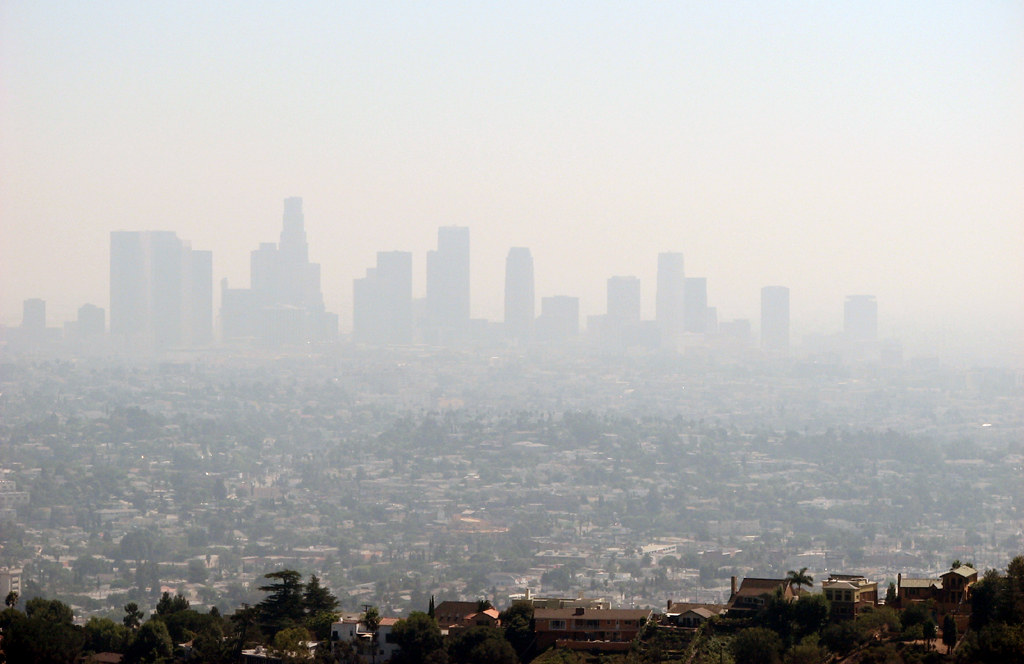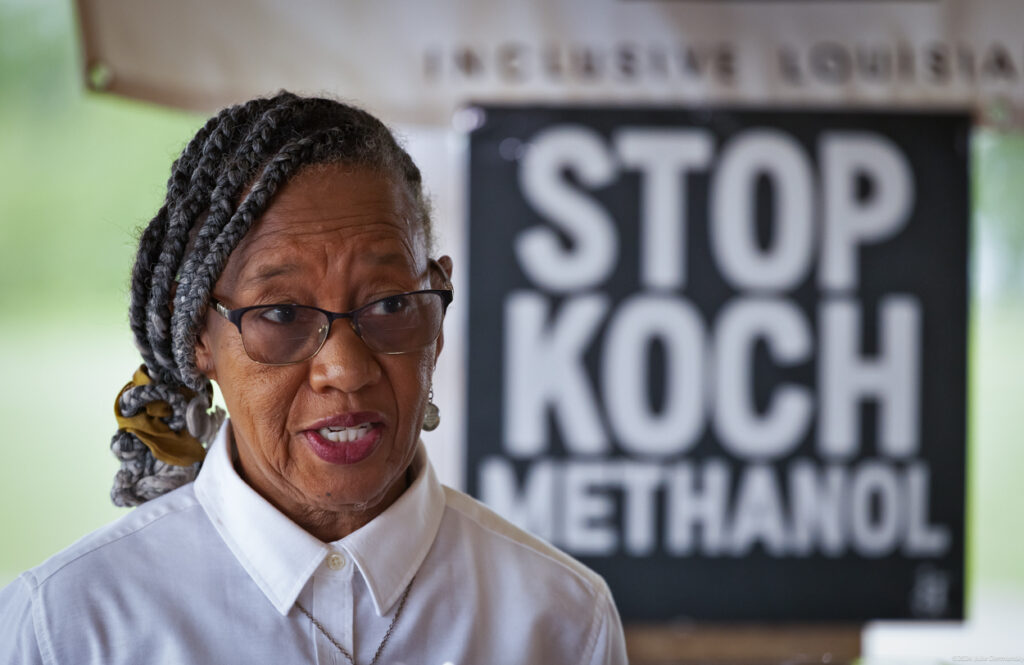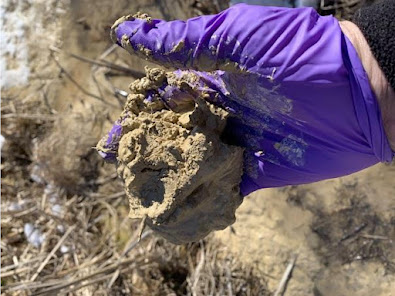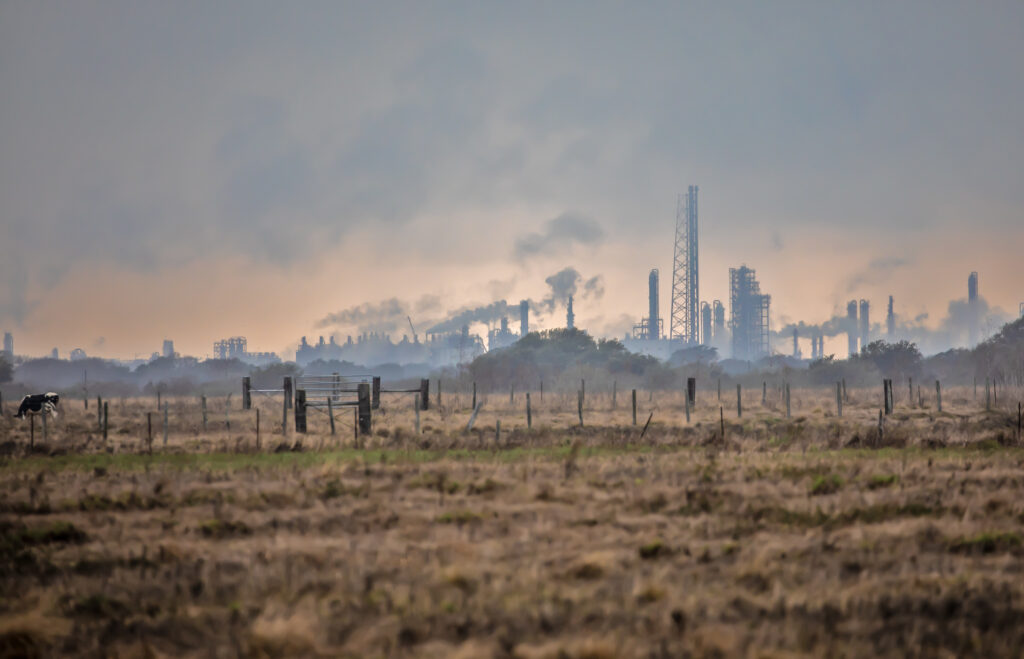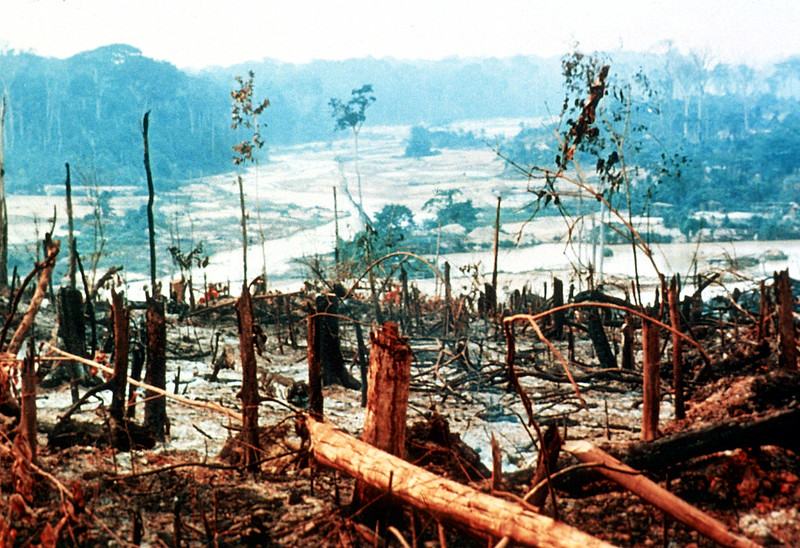As the death toll from COVID-19 continues to rise in the U.S. — and as initial studies suggest that long-term exposure to air pollution may lead to higher death rates from the disease — a new report finds that nearly five in 10 Americans are breathing polluted air.
According to the American Lung Association’s (ALA) latest State of Air Report released April 21, 150 million Americans — almost half the population — are living in areas with unhealthy air. The findings challenge clean air claims by the Trump administration and fossil fuel allies. The report also describes how the current administration’s environmental rollbacks threaten the nation’s air quality and public health.
#DYK? Nearly half of Americans (45.8%) lived in counties that had unhealthy ozone or particle pollution in 2016-2018. https://t.co/viZps4WKx3 pic.twitter.com/VRgYbrJg51
— lungassociation (@LungAssociation) April 21, 2020
The American Lung Association’s 21st annual State of the Air Report marks the 50th anniversary of the Clean Air Act, a bedrock environmental law enacted in 1970. Although air pollution has largely declined since then, air quality challenges remain, and the fossil fuel industry seeks to undermine the law intended to protect our air, according to the report. “Undermining the Clean Air Act itself is one of the fundamental goals of polluters and their allies,” the ALA report states.
Correcting the Record on Clean Air
Several conservative think tanks tied to fossil fuel funding have promoted a narrative that America’s air is among the cleanest in the world, and that this is due to rising prosperity and economic growth. The Texas Public Policy Foundation’s Life:Powered project, for example, posted a video last year touting the country’s clean air, and last fall the oil and gas–funded Consumer Energy Alliance released a misleading report tying Pennsylvania air quality improvements to gas drilling. More recently, the Institute for Energy Research, which has been funded by the oil industry and Kochs, produced a similar video titled “Breathe a Little Easier,” which claims that America’s air is cleaner today because, “as countries get wealthier, the greener they eventually become.”
The reason our air quality improved is quite simple: when people become wealthier, they can more easily afford cleaner water and air. https://t.co/VrJNtiXu9k
— Institute for Energy Research (@IERenergy) April 22, 2020
How then, in the wealthiest country in the world, can nearly half of the population be breathing unhealthy air? While it is true that the air is cleaner than it was in 1970, the number of Americans exposed to harmful air pollution has actually risen in recent years. According to the American Lung Association, the number of Americans living in counties with unhealthy air increased by 8.76 million compared to last year’s report, and 15.9 million more Americans compared to the 2018 report.
Furthermore, the progress that has been made in cleaning up America’s air, ALA clarifies, is due to the Clean Air Act. “For years, the ‘State of the Air’ report chronicled the slow but steady improvement in the nation’s air quality thanks to the Clean Air Act,” ALA explains.
What groups like the Texas Public Policy Foundation and Institute for Energy Research also fail to mention in their videos celebrating clean air is the role that climate change plays in exacerbating air quality challenges. Warmer temperatures make ozone, a smog precursor, more likely to form, and warming worsens wildfires that create dangerous smoke and particulate pollution. “Climate change clearly drives the conditions that increase these pollutants. The nation must do more to address climate change and to protect communities from these growing risks to public health,” the ALA report states.
“To protect the advances in air quality we fought for 50 years ago through the Clean Air Act, we must again act today, implementing effective policies to protect our air quality and lung health against the threat of climate change,” ALA President and CEO Harold Wimmer said in a press release.
Trump Regulatory Rollbacks
The Trump administration, however, is rolling back policies and regulations designed to protect air quality and the climate. The President referenced America having “among the cleanest air” in recent Earth Day remarks, and former coal lobbyist, now Environmental Protection Agency (EPA) Administrator Andrew Wheeler said in a statement last year, “we have the cleanest air on record.” At the same time, this administration is actively weakening and removing clean air protections, undermining its own proclamations.
The ALA report outlines actions the Trump administration is taking that threaten clean air and the climate. Besides attempting to weaken the Clean Air Act, fossil fuel interests have pushed for a number of other regulatory rollbacks, and the Trump administration is largely delivering on their demands.
Amid a health crisis worsened by air pollution, Trump’s @epa has:
-rolled back limits on pollution from power plants
-weakened car emissions standards
-given polluters a pass on soot pollution
-doubled down on efforts to #CensorScience
-relaxed enforcement of enviro protections— Gina McCarthy (@GinaNRDC) April 16, 2020
The EPA recently announced it would not be strengthening the standard for particle pollution or soot, despite the agency’s own analysis showing that strengthening the standard by 25 percent could save 12,500 lives per year. The current soot standard results in over 52,000 premature deaths a year. Industry groups including the American Petroleum Institute praised the EPA’s proposal to maintain the current standard. The EPA is expected to also decline to strengthen the standard for ozone pollution.
Just days after EPA’s announcement on the soot standard, the agency finalized a rule that undermines the limits on mercury, lead, and toxic air pollutants from power plants. According to the ALA, EPA “deliberately undercounted the benefits of these protections.” The National Mining Association, a coal industry trade group, welcomed EPA’s final rule, saying it “rights a longstanding abuse of regulatory power.”
Another final rule rolling back existing regulations that the Trump administration recently announced is the weakening of the clean car standards. Under the new SAFE rule, fuel economy for new cars and light-duty trucks will increase only slightly by 1.5 percent a year compared to 5 percent a year. As the ALA notes in its report, “Weakening these cleaner cars standards will not only greatly slow progress in cleaning up climate pollution from the transportation sector, but will also cause additional premature deaths from air pollution.”
Fossil fuel industry interests, again, celebrated this rollback. The American Energy Alliance, the advocacy arm of the nonprofit Institute for Energy Research, issued a statement claiming the new rule “will save lives,” but the administration’s own analysis shows that it could cause up to 1,000 more premature deaths from air pollution.
Additional harmful actions the Trump administration is undertaking, as identified in the ALA report, include limiting the scientific studies that EPA will consider when rulemaking, replacing the Clean Power Plan to limit power plant pollution with a much weaker rule, and rolling back methane standards for oil and gas sources. EPA has also issued a temporary policy that essentially lets polluters claim the COVID-19 pandemic as a cover for not monitoring or reporting civil violations of environmental protections. “Finally, amidst the COVID-19 crisis, polluting industries have sought, and EPA has granted, compliance waivers,” the ALA report explains.
Since that compliance waiver policy was announced in late March, an analysis of state air monitor readings by Texas A&M University found that air pollutants in Houston’s industrial corridor rose by as much as 62 percent. A recent headline sums up the health consequences: “’They’re killing us,’ Texas residents say of Trump rollbacks.”
Main image: Smog in Los Angeles in 2006. Credit: Ben Amstutz, CC BY–NC 2.0
Subscribe to our newsletter
Stay up to date with DeSmog news and alerts


